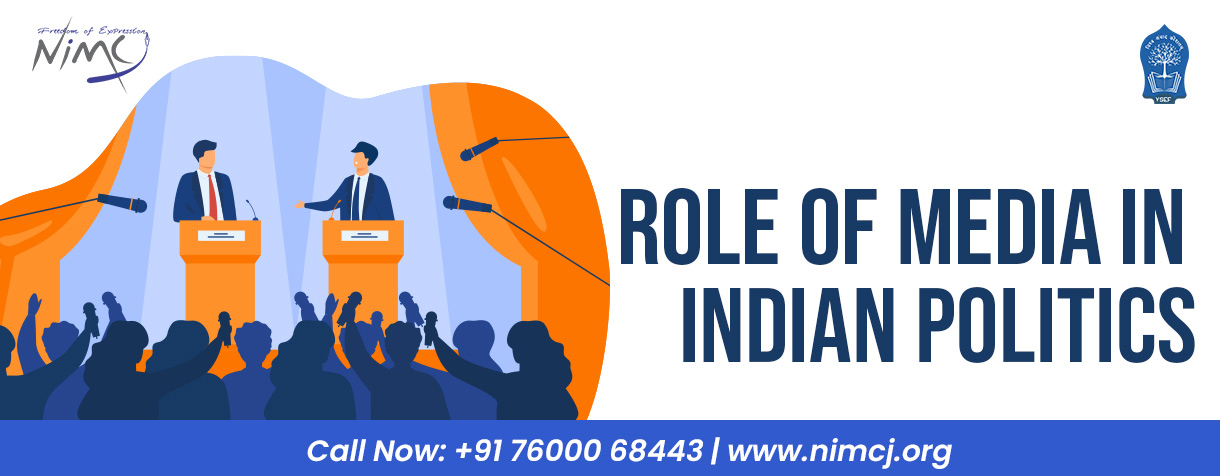
Media Plays a crucial role in Indian Politics as India have the world's largest newspaper, with over 70,000 publications selling 100 million copies daily whereas over 379+ million Indian internet users access news online through various news apps/websites.
Media and politics are inseparable components of democracy, each relying on the other. Media enables citizens to take part in election processes, creating a crucial balance in the democratic vehicle. The relationship has become more dynamic with media advancements. Ensuring timely communication of information and decisions to citizens. From announcing election dates to presenting results. The media plays a pivotal role in democratic functioning.
In the era of globalization and modernization, a well-developed media and knowledgeable personnel are essential for effective communication. Convergence has made information accessible and affordable. Unbiased mass media are vital for democratic elections. Not only for casting votes but also for informing and educating voters about political parties, policies, and candidates. The media serves as a watchdog by reporting on election campaigns, facilitating political debates, and scrutinizing the electoral process for fairness and probity.
The existence of independent media and free and fair elections. defines India as the world's largest democracy. As the fourth pillar of democracy, the media must fulfill its watchdog role during elections. Modern electronic media has streamlined and accelerated the election process. By transforming the relationship between politics and media into an inseparable and indispensable alliance.
Democracy without independent media is ineffective as they are inseparable. Media serves as a crucial tool, educating, entertaining, and disseminating information. It acts as a bridge between the people and the government, enabling communication. During elections, modern media connects political parties with diverse regions. By conveying ideas and gathering responses. Media plays a vital role in making citizens aware of public representatives and government initiatives. In the democracy-politics duo, one cannot exist without the other. Proper media implementation is essential for effective democracy, particularly during elections. By making media and politics indispensable instruments for smooth governance.
Public opinion is influenced by the media, shaping perspectives on subjects and leaders. The media's reporting and editorial coverage can both impact public conversations and agendas. It is crucial for the media to maintain neutrality and objectivity. The coverage of the 2020-21 farmers' protest is a case in point. Where media portrayal contributed to the polarization of public opinion. Some outlets were accused of bias in favor of the government. While others sympathized with the farmers, criticizing the government's handling of the protests.
The rise of social media has further amplified the media's role in Indian politics. Platforms like Twitter, Facebook, and Instagram are now essential tools for politicians to connect with the public. Social media empowers citizens to share their ideas and concerns, but it has also sparked controversy. During the COVID-19 pandemic, some Indian media outlets were criticized for spreading misinformation through social media. Leading to fear, confusion, and panic buying of unproven treatments.
The media's role in Indian politics has faced challenges including accusations of bias, sensationalism, and a lack of impartiality. Political parties allege media influence by corporate interests working against them. Concerns have been raised about the media's impact on public opinion by asserting that coverage is often sensationalized and lacks substance. The 2012 Delhi gang rape case serves as a notable example, where media coverage was criticized for being sensational and exploitative. Channels aired graphic details and images violating the victim's privacy by contributing to mob violence and vigilantism.
In the pulsating heart of Indian politics. The role of media orchestrates a symphony of information, influence, and responsibility. This analysis serves not only as an exploration of the past and present but as a beacon guiding the trajectory of the media's indispensable role in shaping the future of Indian democracy.
Learn more about the journalism field in detail by choosing NIMCJ.
31 Oct 2023
Post by : NIMCJ